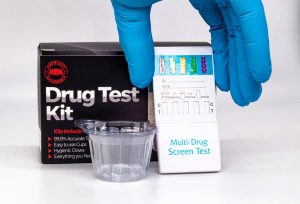
In a recent DWI trial here in Conroe, Texas where the jury made the right decision and found my client not guilty, I was reminded of a previous blog. In Three Questions to Ask your DWI Lawyer I explored the concept of asking, “What is your experience with the NHTSA manual?” instead of “What’d my video show?” The acquittal in this recent DWI trial would not have been possible without an intimate knowledge of the National Highway Traffic Safety Administration (NHTSA) manual. With this in mind it’s worth revisiting and diving further into the importance of the NHTSA DWI Detection and Standardized Field Sobriety Test (SFST) manual and the SFSTs.
The NHTSA DWI manual is the bible for law enforcement in alcohol related driving offenses. It delineates the proper policies and procedures in administering the SFSTs. Defense Counsel must be familiar with those investigative techniques to ensure that law enforcement administers them correctly. If one cannot identify if they’re administered correctly, then they can’t identify if they’re administered incorrectly and attack them in trial. In short, if you know what law enforcement is supposed to be doing better than they do you’re better suited to find issues that can benefit the accused. Some potential issues include an individual who is not an ideal candidate for the tests being encouraged to perform, invalid clues being counted as signs of intoxication, failing to eliminate other causes of poor performance or bizarre behaviors.
Keep in mind, these tests are not designed to help or exonerate you. No irrefutable objective science supports the “evidence” gathered by these assessments and through its criteria to prove intoxication. “Validation studies” conducted approximately 30 years ago contribute to the substantiation of this investigative tool. However, the tests themselves and the performances are largely interpreted through subjective belief; the subjective belief of the officer. The officer observes the clues and tallies the score to determine if the person is intoxicated. For the divided attention tests, the Walk and Turn and the One Leg Stand, an officer only needs to observe two clues before they believe you are intoxicated. But several problems with these so-called clues can arise simply from the way the officer instructs the test. A clue of intoxication according to these tests is “starts too soon.” Many law enforcement agents fail to advise individuals suspected of DWI that this counts against them. Instead of saying, “Stay on this line until I tell you to start. If you start before I tell you, that is a clue that you’re intoxicated.” Most accused of a crime are nervous, eager to please, and more eager to conclude the investigation. So once given instructions, they want to get started to get it over it with more quickly. Starting too soon should not be a sign of intoxication, but by the criteria of this test it is.

 Conroe Criminal Lawyer Blog
Conroe Criminal Lawyer Blog




